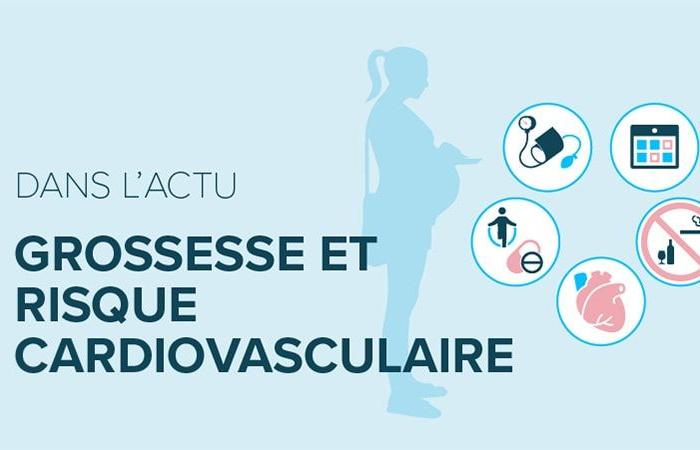According to the WHO, the number of deaths related to pregnancy decreased by more than 40% between 2000 and 2023 worldwide thanks to intervention strategies. However, the figures remain alarming: it is estimated that a pregnant woman dies every two minutes. In 2023 alone, more than 260,000 women died of complications related to pregnancy or childbirth in the world.
If France is in the European average of maternal mortality, with a rate of 8.5/100,000 living births, according to the latest three-year EncM 2016-2018 this figure has increased slightly compared to previous surveys. Half of these deaths occur during pregnancy and a quarter during the peripartum and up to 6e postpartum day. Women of 35 and over, in a situation of obesity, socially vulnerable, residing in the departments and regions of overseas or from immigration are the most at risk of maternal death.
doctors can help reduce maternal mortality, although it does not only depend on their clinical action, but also factors such as government economic support, geopolitical context and other social determinants.
AHA Scientific Declaration
According to a recent declaration of theAmerican Heart Association (AHA), measures such as the provision of care based on evidence from the pre-designation phase, during pregnancy and after delivery, as well as identification and management of cardiovascular risk factors, mental Health and other medical conditions, are essential to improve results, both for women and for their babies. The document highlights the essential health factors to be monitored in pregnant women in order to prevent cardiovascular complications, including control of blood pressure, blood sugar, lipids and weights, as well as the assessment of lifestyle (smoking, alcohol, etc.) and mental health).[1]
Recommendations to prevent CV risks in pregnant women
During the consultation, it is therefore essential to:
-
organize a preconception consultation,
-
Check blood pressure,
-
control blood sugar,
-
Maintain an adequate lipid profile,
-
Check weight gain,
-
promote healthy behavior,
-
emphasize the importance of avoiding exposure to nicotine and alcohol consumption,
-
promote good mental health,
-
assess other cardiovascular risk factors,
-
Be attentive to the underlying conditions or complications of pregnancy (hemorrhages, embolism).
About 2 % of pregnancies are associated with maternal cardiovascular diseases. Although many women can carry out their pregnancy through specialized care, significant risks persist for the mother and the fetus. In addition, while 40 % of deaths related to pregnancy are allocated to cardiovascular causes, more than 80 % are avoidable, which underlines the need for a multidisciplinary and specialized approach.
Heart
Any woman with a desire for pregnancy or who is already pregnant must benefit from an in -depth medical assessment, a complete physical examination and, in the event of cardiovascular risk, additional examinations such as ECG, echocardiography or chest radiography (before design). It is also essential to review pharmacological treatments such as anticoagulants, and to consider genetic council, because hormonal changes and increased cardiac output during pregnancy increase vascular fragility and predisposition to valve and myocardial diseases.
Lipids and hypolipage
At the same time, it is advisable to monitor possible alterations of the lipid profile. Although the use of statins during pregnancy has recently been approved, many doctors remain reluctant. Cardiologists-obstetricians recommend low or medium dose hydrophilic statins during pregnancy and breastfeeding, as well as colonimine in complementary treatment. If the patient received anti-PCSK9 before design, they should be suspended during pregnancy and resumed after breastfeeding. Studies continue on the combined use of statins and aspirin to prevent preeclampsia.
Control of overweight and obesity during pregnancy is essential, not only to prevent maternal cardiovascular diseases, but also to avoid infantile obesity. A study by the National Public Health Institute (INSP) in Mexico in collaboration with researchers from theIcahn School of Medicine at Mount Sinai In the USA and other institutions, evaluated 751 women and their children for eight years as part of the Progress cohort.
The analysis took into account the body mass index before pregnancy and weight gain during gestation, classified as insufficient, adequate or excessive. Almost half of the participants (49.3 %) presented excessive weight gain during pregnancy and 19.8 % insufficient weight gain. Women overweight or obese before pregnancy presented a higher risk of excessive weight gain during pregnancy (odds ratio [OR] : 1.9 and 3.5, respectively). In conclusion, it has been determined that pre -ethical obesity has a greater impact than excessive weight gain during pregnancy on the development of infantile obesity in the future.
It is also crucial to try to prevent other underlying conditions, such as hemorrhages, thrombosis, embolism, anesthetic complications and pre-existing diseases that can worsen during pregnancy. This is why adequate and timely management of pregnant women can significantly contribute to reducing maternal mortality. The challenge for health professionals is to recognize that risk factors are interdependent and that a complete and detailed analysis is necessary to avoid complications during and after pregnancy.
Article translated and adapted to The Spanish edition of Medscape .








